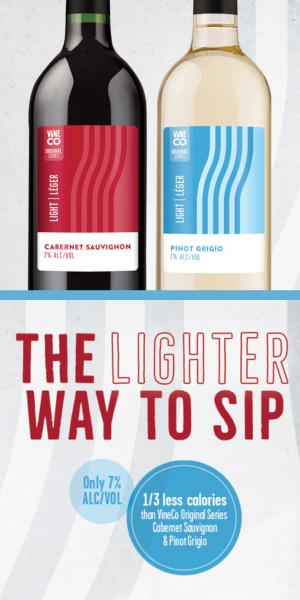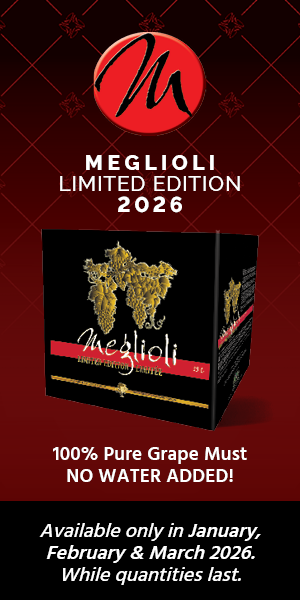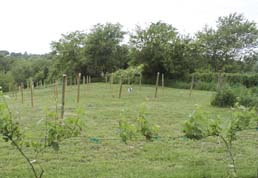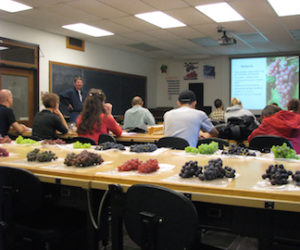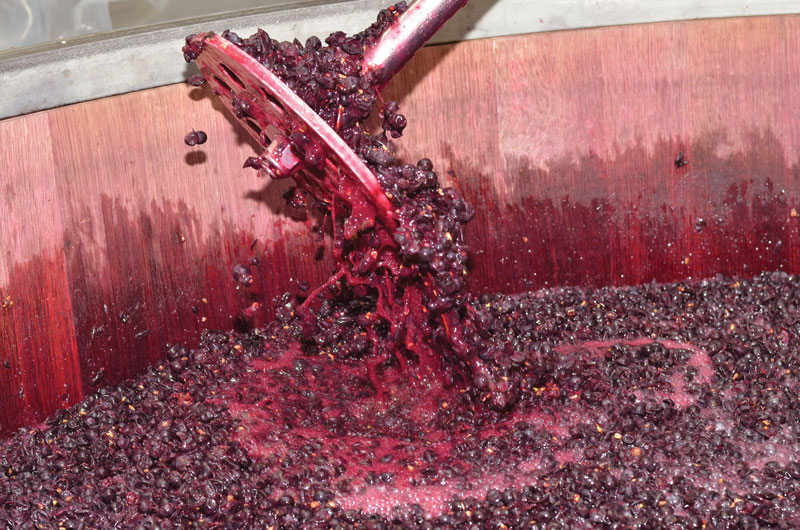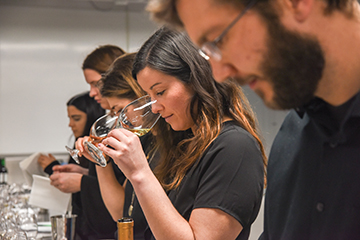
The idea of becoming a professional winemaker can be quite captivating with the thought of sipping your well-made wine amongst scenic rolling vineyards in the sun. But as with any job, there comes many factors to consider about the path and destination, including how you go about learning the craft at a commercial scale.
For some that means pursuing a formal winemaking education at a university, community college, or technical college. Choices for a wine program continue to grow and include non-credit courses and certificate programs, along with associate’s, bachelor’s, and even graduate degrees.
For example, University of California, Davis (UC-Davis) offers a bachelor’s and graduate degree in viticulture and enology, a certificate in winemaking, and continuing education classes. Texas Tech University has a bachelor’s and graduate degree in plant and soil science with a specialization in viticulture and enology, along with three different certificate programs — winemaking, viticulture, and small-scale farming. At Cornell University there is a viticulture and enology major and minor, graduate degrees, and a winemaking certificate. Niagara College offers a five-term program that takes two and half years to complete.
Through the partnership between Michigan State University and Northwestern Michigan College (NMC), students can earn an associate’s of applied science degree in viticulture from NMC and a certificate in viticulture from MSU. After the two-year program, which focuses on the viticulture aspect, students can transfer without reapplying into a bachelor’s degree program in the MSU College of Agriculture and Natural Resources.
There are also options at Fresno State, Pennsylvania State University, California Polytechnic State University, Oregon State University, Washington State University, Purdue University, and several community colleges throughout North America.
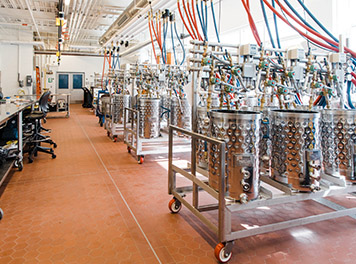
David Block, Department Chair and Professor of Viticulture and Enology at UC-Davis, says the advantage of getting a formal education in wine is it gives students a really large toolbox to make the wines that have the characteristics they’re striving for. It gives them the ability to be more creative in their winemaking, he says. The education can assist in effective problem solving when things go wrong and can be helpful during the challenging years when the grapes aren’t what you expect.
“You can make wine without that, but having that toolbox allows you to make wines that are more what you’re going for,” Block says.
For people in the program that are coming from the wine industry, Block says they often have a light bulb go off thinking, “if I only knew that” or, “this is why it is,” adding a formal education fills in the gaps.
“The advantage of the degree is really understanding what you’re doing,” Block says.
And that’s true for Winemaker Clint Hepper, who says having that education has helped him make sense of it all, know the language, and made him more comfortable in his winemaking career, as opposed to coming in and learning on the fly. Hepper was actually set to pursue landscape architecture at Washington State University when a poster board for the viticulture and enology program caught his eye at an orientation. He thought it sounded interesting and was intrigued when he learned the job placement coming right out of school was in the 90th percentile. During his education, he learned everything from the viticulture side — how to cultivate and grow wine grapes, to the enology side — the chemistry behind the winemaking, along with marketing and selling.
“The most beneficial thing it provides is having that leg up,” Hepper says of an education, especially in a competitive industry. “It helps you propel and have a more well-rounded idea of what to expect in the industry.” He feels his degree helped with gaining opportunities, such as an internship at Hard Row to Hoe Vineyards in Washington, which led to his current role as Winemaker.
Anna Katharine Mansfield, Associate Professor of Enology at Cornell University and Associate Director of Cornell AgriTech, says students coming out of a wine program may have a step up knowing the book learning, theory, and the most recent scientific thinking behind winemaking.
Having those concepts in mind when you go into a winery means you aren’t just at the mercy of who your boss is and what they know. “What you learn is dependent on who you’re working with and the region you’re working in,” Mansfield says. She points out that when it comes to winemaking, there’s a lot of tradition in many places, and being able to value those traditions but understand the “why” and the science behind it, makes a more effective winemaker.
While a winemaker will still need hands-on work, that education could speed up progress in their career, she adds. What’s unique about a winemaking degree is everything is applied, she adds, not just memorizing information from literature.
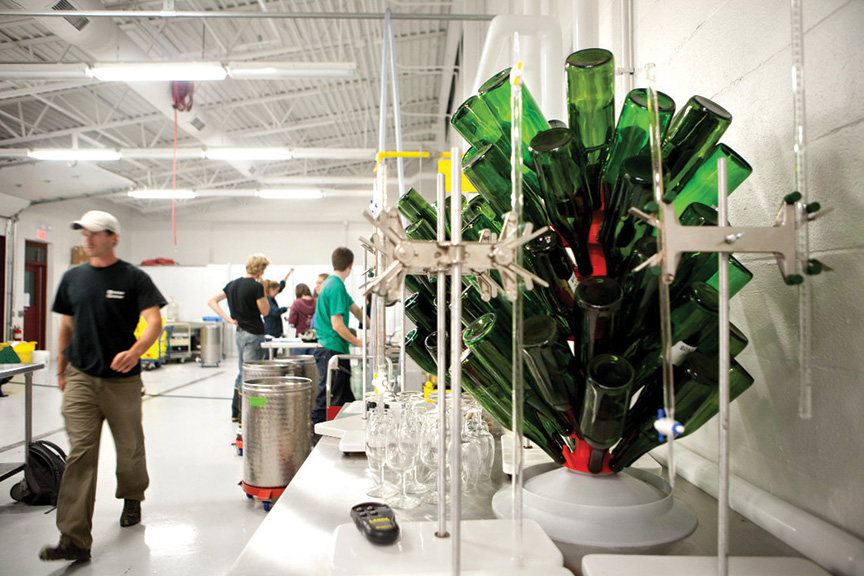
For Matt Danner, Assistant Winemaker at King Estate Winery in Eugene, Oregon, his education helped him understand yeast health and how to manage fermentation along with understanding the vineyard side, such as various techniques to bring out different qualities and highlight different aspects of the grape. “For me, it really gave me a head start of understanding the biology of the fermentation,” Danner says.
Danner studied food science and fermentation at Oregon State University, with a chemistry minor with a fermentation science focus. He took courses in wine production (including different techniques based on varietals) and wine sensory (which gave an understanding of wine faults and what can cause different issues). A wine analysis course included running analysis, checking acid and sugar, making adjustments, and had a main project of producing a red and white wine, where students had the opportunity to provide feedback to other students on quality.
His education also helped foster the ability to problem solve, giving him the experience of working in groups to overcome obstacles, which is a frequent experience winemakers face in the industry.
Winemaker Matt Iaconis also says that his education allows him to look at wine differently. “It teaches you how to think like a winemaker,” says Iaconis, who is the Founder and Owner of Brick & Mortar Wines located in Healdsburg, California, with his wife, Alexis, as well as Delta Wines for Change.
Iaconis went to UC-Davis to learn aeronautical engineering and become an astronaut, but that all changed when he signed up for a winemaking elective that simply fit into his schedule amongst football practice and other classes. He thought it was really exciting to study, enjoyed the art behind it, and liked that it’s very finite. He left UC-Davis not knowing how to make great wine, he says, but understanding the process, how to interpret problems, and how to analyze things. “Everything else comes with experience and time,” he says, while also noting he has a lot of friends that make phenomenal wine that don’t have the formal wine education.
Dale Elshoff, Program Coordinator at Michigan State University Institute of Agriculture Technology, echoes the importance of understanding the science to be able to practice the art of creating wine successfully. There’s a lot of science that goes into wine, she points out — the soil, diseases, insects, climate, geography of where the grapes are grown, and all of the chemistry involved in making the wine.
“When we’re talking about winemaking, it requires both education and experience,” says Jenne Baldwin-Eaton, who developed Colorado’s first associate’s degree in viticulture and enology as a partnership with Colorado Mesa University and Western Colorado Community College. “Winemaking is truly the combination of art and science.”
Baldwin-Eaton, who recently became the Founding Chair/President for the newly established Warren Winiarski/Gerald Ivancie Institute of Viticulture and Enology, points out that you can’t see a lot of what’s involved in winemaking, but education allows you to understand what is happening at each stage and what can go wrong at each stage. Every winery has a different philosophy, style, and protocol, she explains, so if a student has a strong educational foundation, they have the knowledge to understand what direction a winemaker is going in and why they are doing what they’re doing.
That is true for Katie Santora, Winemaker at Chehalem Winery in Oregon’s Willamette Valley. From a day-to-day aspect, Santora learned the high demands of the job with work experience — including intense hours and the physical aspect — but the education helped her understand what was actually happening as well as how to talk about wine in a different way. Santora wasn’t set on a major when she started college, but she quickly realized her favorite general education courses were the ones that involved math and science. Home for the summer and talking with her dad’s friend about her college game plan, he mentioned a wine program at the school he had attended, UC-Davis. Looking up the program, she was excited at the thought of pursuing a cool subject that entailed the classes she enjoyed. With that science and math core, she thought even if she changed paths, what she would learn could transfer to other careers. She graduated in 2007 with a degree in viticulture and enology. “I do think having a wine education can open a lot of doors at this point,” she says.
Maureen Qualia, Senior Lecturer and Enologist at Texas Tech University, says that a formal wine education can definitely impact a student’s career search with viticulture and enology being applied sciences encompassing many disciplines. “An education in viticulture and enology lays the foundation of these scientific and technical concepts,” Qualia says. “These are then built upon through experience, practice, and working with mentors in the industry.”
Iaconis also says his formal education opened up doors for him, allowing him to apprentice in Australia, New Zealand, Italy, and France. From a networking perspective, it’s phenomenal, he says. “You meet a lot of people you end up working with.”
Block says UC-Davis has a career network of alumni all over the world making wine, giving you a potential opportunity to travel and experience winemaking in other places. Wineries from around the world (especially in California) frequently contact the college with positions that they are trying to fill.
Weighing the Costs
While gaining knowledge along with networking opportunities and potential for career advancement are benefits, there are things to consider when it comes to choosing a program and choosing to even pursue a professional career in wine. It’s important to understand the price of an education and commitment involved, job outlook and salary, and the reality of what a commercial winemaker does on a daily basis.
Mansfield suggests students consider the cost of a program and what you expect to make. She points out students are not going to come out of an undergraduate program making a whole lot of money. Often the first job will be as an assistant winemaker and they will have to work their way up from there.
According to Salary.com, the salary range for a winemaker in the United States ranges from $49,332 to $79,005, with the average being $64,179. The average salary for a vineyard manager ranges between $46,108 and $62,885, with the average being $53,167.
The cost of a program varies greatly. For example, the winemaking certificate at Purdue University is a one-year program costing $1,250 (it’s advised that students have prior or concurrent winemaking experience). The certificate program at UC-Davis is $8,810 for an 18-month to 2-year program. A bachelor’s or graduate degree will cost significantly more. Of course there are other costs associated with pursuing an education similar to any area of study, including books, supplies, potentially room and board, and most likely, purchasing wine.
Depending on the program and a student’s background and experience, there may be scholarships available through the college. There are also scholarships through the Napa Valley Vintners, Delicato Family Wines, The Roots Fund, American Society for Enology and Viticulture, and more. Depending on a school’s eligibility and a student’s financial need, there is also potential for financial aid.
Elshoff suggests students think about how they best work and learn, who the instructors are, whether it’s preferred to have more theory and classroom experience or time out in the field, and whether in-person courses are preferred over online courses. And a big question, she poses — what makes you happy and why do you want to pursue this path? “You might love to cook but that doesn’t mean culinary school and becoming a professional chef is right for you.”
All About Location
When it comes to wine, location is a major factor — both in determining if the wine industry is where a person wants to be and where to go to school. There were 64,000 people working in wineries in 2020, and the top three U.S. states with wine jobs in order were California, Washington, and Oregon, according to the U.S. Bureau of Labor Statistics report.
“Each of the wine regions are very specific with their climate, growing conditions, pests, and varieties,” says Baldwin-Eaton, adding it can be helpful gaining your education and experience specific to the area you wish to work.
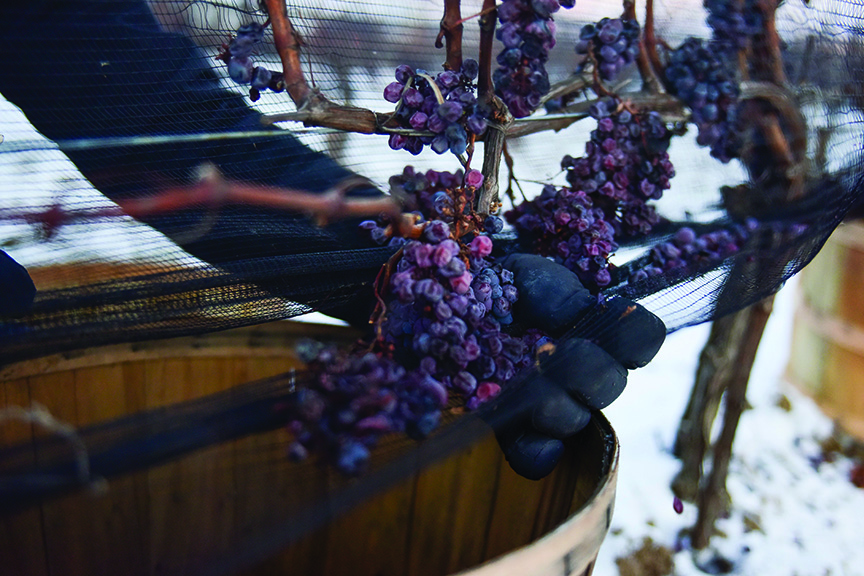
Mansfield agrees, saying picking a program based on location with an idea of where you would like to end up makes sense. For instance, cool-climate regions such as New York or Washington may have different hands-on opportunities and field process methods.
Besides keeping in mind certain types of wine and grapes, when it comes to choosing a school, Danner says consider what they offer beyond the education as far as the town and community, including proximity to wineries because ultimately some kind of internship is usually part of the program or the first step afterwards.
In many programs, it’s not just what a student is learning that’s a selling point but it’s how they’re learning and the facilities and resources that become available. Students at Washington State study at Ste. Michelle Wine Estates WSU Wine Science Center, a 40,000-square-foot facility with a wine library, research and teaching laboratories and winery, and the Albert Ravenholt Research and Teaching Vineyard, a two-acre vineyard growing Cabernet Sauvignon, Merlot, Syrah, Chardonnay, Gewürztraminer, and Riesling. UC-Davis has The LEED Platinum Teaching and Research Winery, a 40-acre research vineyard located in California’s Napa Valley, and the 8,500-square-foot Jess S. Jackson Sustainable Winery Building.
At Niagara College Teaching Winery, students get the unique opportunity to learn how to make ice wine and work with cool-climate grapes. A 40-acre vineyard gives students the opportunity to work with numerous grape varieties. The winery there is actually open to the public and operates like any other winery.
Fresno State also has a student-run winery where grapes are sourced from a 120-acre campus vineyard. Students not only make the wine, but also help with marketing and selling.
At Michigan State University, Elshoff says students work closely with the industry and see it all — small and large operations, family-owned businesses, and corporate wineries, experiencing different ways of growing grapes, such as sustainable practices, more traditional, biodynamic, and organic. This can give students an opportunity to develop their own values, think about what kind of environment they want to work in and better define their path, she adds.
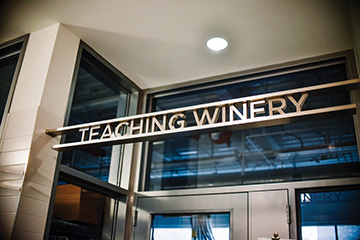
The courses in each program vary but often consist of a lot of chemistry, science, math, and learning the aspects of wine production. Depending on the school, students can also have access to other beneficial courses besides ones directly related to winemaking. For example, as part of a Wines of the World course at Texas Tech, students take the certification exam for the Wine and Spirits Education Trust (WSET) Level 1 Award in Wine. At Michigan State University, students can take Uncrewed Aerial Systems in Agriculture, which earns them their FAA Drone Pilot license, which is required of everyone using a drone for commercial purposes. In agriculture, including vineyards, drones can be used for mapping and planning, spraying fungicides and pesticides, seeding and interseeding, soil analysis, and more. There is also a compliance and safety course that students leave with their Michigan Department of Agriculture and Rural Development Certified Pesticide Applicator license, which allows them to purchase and apply restricted chemicals, pesticides, and fertilizers in vineyards. Some colleges, including Colorado Mesa University, offer courses that cover all that goes into a winery – regulations, licensing, taxes, and so on. Santora suggests those who want to become winemakers also take a public speaking course, since most people want to hear you talk about what you do and for those wanting to own their own winery, a business degree or minor would be helpful, she says.
Many colleges offer other potentially beneficial courses that dive into marketing, sales, accounting, hospitality and tourism, entrepreneurship, and sustainability.
Preparing for school
To prepare for a wine education, Hepper suggests to work or observe somewhere in the industry before starting classes. “It will help by giving you good insight,” he says.
Santora says people should invest in books, tastings, or anything to boost their wine knowledge. “Do a harvest or two before deciding on an institution to study as well,” she says. “Most wine programs involve upper-level math and science, so keep that in mind when preparing.”
Danner advises a solid scientific foundation helps as chemistry, biology, physics, and math all play important roles in wine education. He also suggests learning to be proficient in Microsoft Excel, which is useful in education and winemaking. “Develop good communication skills, especially under stressful conditions,” he adds. “Leadership roles are a great way to improve your communication skills.”
And before enrolling, make sure you know exactly what being a professional winemaker really entails. The job is often described as rewarding but is certainly not all sipping wine and enjoying fancy meals. It’s described as hard work and physical labor that involves collaborating with a team, a lot of paperwork and licensing, and a significant amount of time devoted to cleaning and sanitation. During a three-month harvest, a winemaker could have over 12-hour days seven days a week.
“You need to love what you’re doing and be in it for the long haul,” Baldwin-Eaton says. “A lot of money is tied up before you see a return. It is not a get rich quick business,” she adds, pointing out that grapevines won’t produce a crop for at least three years and wine can take anywhere from nine months to more than two years to make prior to selling.
As many alumni say, a wine education certainly has its benefits — a solid understanding of the science of winemaking and the ability to help open doors to opportunities to memorable experiences and a job for those truly passionate about and dedicated to wine.

